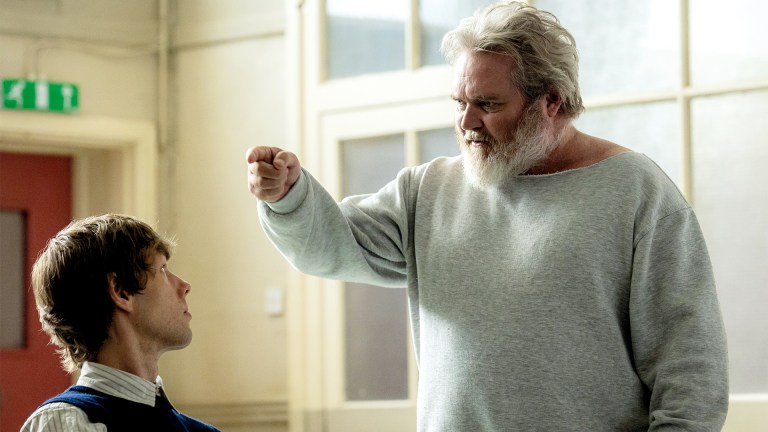Moving our bodies is a proven way to prevent mental health problems. A study of over one million Americans on the association between physical and mental health found regular movers reported 12-23% lower levels of mental health problems than sedentary participants, when matched for gender, income, and other factors.
Big Issue is demanding an end to poverty this general election. Will you sign our open letter to party leaders?
What other single thing could have the same mental health benefits? It has been said that if exercise were a pill, it would be hailed as a wonder-drug.
Yet research by the Mental Health Foundation found that only 25% of people were happy with the amount of physical activity they did.
So why aren’t we doing more? Are we just lazy? We don’t think so.
While the physical benefits of exercise are well known, people aren’t always aware of just how powerful it can be for preventing mental health problems. And it’s not always easy to move. Our ability to realise good mental health always depends partly on our own actions and partly on the society around us, and our place in it.
Advertising helps fund Big Issue’s mission to end poverty
If you’re struggling with money and can’t afford a gym or the sorts of sports that interest you, movement might not be that easy. If your local area is underlit and dangerous, a quick run seems less like an act of self-care and more a gauntlet to contend with. And for many disabled people, the world certainly isn’t always set up for them to be able to do the things they need to do to look after their body and mind.
It’s those whom we most exclude from society that are least likely to be able to take part in movement and enjoy the benefits.
We know that if you’re stuck in the asylum system, homeless, or living with a disability or debilitating health condition, then sport, gyms and walks in nature are likely to seem a long way out of reach.
That’s why the Mental Health Foundation will always stand up for the needs of those who get excluded from society. We’ll be taking our message to the parliaments across the UK to remind our politicians of their role to create more opportunities for movement.
We also want to use the week to empower people to get the most mental health benefits from movement. Moving with kindness to ourselves will be better for our mental health than moving with a critical mindset. You certainly don’t need to push your body to the limit running marathons or climbing mountains to get the mental health benefits of exercise.
Try to pick things you enjoy: you might hate exercise but love sport. Or you might be more of a Sunday stroller than a 6.00 am jogger, and that’s OK.
Advertising helps fund Big Issue’s mission to end poverty
If you want to maximise the psychological benefits of movement even more, think about how you can use it to connect with nature and with friends. The evidence is clear that connection with our natural environment and with other people are powerful protective factors for our mental health.
Setting goals might be something that motivates you, but try to make them realistic. Movement should be about taking care of yourself, not about creating another duty, worry or responsibility in your life.
During Mental Health Awareness Week, we encourage you to find your own #MomentsForMovement – and we remind our political leaders of their responsibility to ensure that the huge benefits of movement are available to all.
Oliver Chantler is head of policy and public affairs at the Mental Health Foundation.
Find out more on Mental Health Awareness Week and read the Mental Heath Foundation’s report ‘Moving more is good for our mental health. So, what’s stopping us?’ here.









